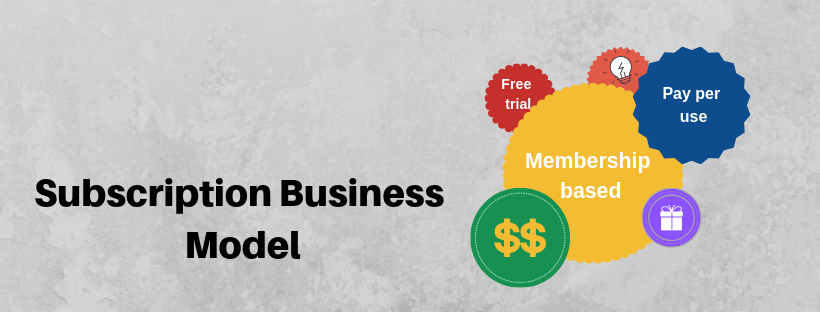Why Nigerian SMEs Are Embracing Subscription Models for Sustainable Growth
Adapting to new ways of earning money is key for small companies in Nigeria. As the market changes, many are turning to subscription services. This shift helps them stay strong, keep customers happy, and build better futures. In this article, you’ll see how Nigerian small and medium-sized businesses are choosing subscription models and why it might be the right move for you too.
- Why Nigerian SMEs Are Embracing Subscription Models for Sustainable Growth
- The Surge of Subscription Models in Nigeria: An Overview
- Benefits of Subscription Models for Nigerian SMEs
- Challenges Faced by Nigerian SMEs in Implementing Subscription Models
- Strategies for Successful Adoption of Subscription Models
- Future Outlook: The Growth Potential of Subscription Models in Nigeria
- Conclusion
The Surge of Subscription Models in Nigeria: An Overview
Global Trends Influencing Nigerian SMEs
Subscription services are everywhere around the world. From streaming video to food delivery, many companies have found success with recurring payments. These stories show Nigerian entrepreneurs what’s possible. They see how a steady flow of income can be generated without constantly chasing new sales.
Economic Factors Driving Adoption in Nigeria
Nigeria’s economy faces many ups and downs. Fluctuations in the currency, inflation, and other uncertainties make it hard to plan. Subscription models give Nigerian SMEs a way to get reliable income every month. When customers pay regularly, it becomes easier to keep the business open even when the economy dips.
The Role of Digital Infrastructure
Internet use is climbing fast in Nigeria. More people own smartphones, making online shopping and payments easier. Digital tools like Paystack, Flutterwave, and Interswitch help businesses accept payments quickly and safely. These tools remove obstacles and make subscriptions simple to manage.
Benefits of Subscription Models for Nigerian SMEs
Better Cash Flow and Predictable Income
One big plus of subscriptions is steady revenue. Instead of guessing how much money will come in, business owners know. Take a small bakery in Lagos that started offering monthly bread plans. Now, they count on weekly income, which helps buy ingredients and pay staff on time.
Building Customer Loyalty and Retention
When customers subscribe, they tend to stick around longer. It’s about creating a relationship that lasts. Personalized subscription options, like customized boxes or premium services, make customers feel special. Over time, they trust your brand more.
Scaling and Growing Market Reach
With regular income, it’s easier to grow. Nigerian SMEs can expand their operations or reach new areas through online channels. Think about a clothing store offering subscription boxes to customers across Nigeria. They’re not limited to just their neighborhood.
Cost Savings and Better Operations
Subscriptions save money too. No need to spend extra on marketing constantly—happy subscribers stay longer. Plus, knowing how many customers will pay next month helps plan inventory better. Small businesses can avoid waste and cut unnecessary costs.
Challenges Faced by Nigerian SMEs in Implementing Subscription Models
Infrastructure and Tech Limitations
Not all areas in Nigeria have reliable internet or easy digital payment options. That can slow down adoption. Also, cybercrime is a real concern. Small businesses need to secure their systems safely to prevent fraud.
Customer Awareness and Acceptance
Many Nigerians are still unfamiliar with paying for subscriptions regularly. It takes time to change old habits. Businesses need to educate customers about how subscriptions work and why they’re good for them.
Regulatory and Tax Issues
Rules about online payments and taxes can be complicated. Small companies must keep up with local guidelines to avoid penalties. Proper compliance isn’t just smart—it’s essential for long-term success.
Management and Operations
Switching from traditional sales to subscriptions involves new processes. Staff need training, and some business models require new systems or software. This change can be tough but is crucial for growth.
Strategies for Successful Adoption of Subscription Models
Customizing Offerings for Local Needs
Different customers want different things. Small businesses should create plans that suit various tastes and budgets. For example, a mobile tech repair shop might offer weekly or monthly service packages.
Using Technology and Digital Tools
Investing in easy-to-use platforms or apps makes signing up simple. Using data analytics can help personalize offers and understand customer preferences better.
Building Trust and Loyalty
Be honest about charges and benefits. Clear communication builds trust. Offering discounts or flexible plans encourages more customers to join and stay committed.
Partnering with Financial Service Providers
Collaborations with fintech companies like Paystack or Flutterwave make payments quick and safe. They can also help customers with credit plans, making subscribing easier.
Staying Compliant and Protecting Data
Keep up with laws related to online payment and data privacy. Using secure payment systems safeguards customer info, boosting confidence in your service.
Dont miss: Winning Zero-Click Searches: SEO Strategies for Nigerian Brands in 2025
Future Outlook: The Growth Potential of Subscription Models in Nigeria
The trend shows more Nigerian SMEs will adopt subscriptions in the coming years. Sectors like retail, healthcare, education, agriculture, and entertainment stand to gain a lot. The government’s push for digital growth can boost this movement. Industry experts believe that if companies stay flexible and honest, the subscription economy will thrive.
Conclusion
More Nigerian SMEs are turning to subscription models because they work. These systems create steady income, improve customer loyalty, and help businesses grow. While there are hurdles like infrastructure and awareness, smart planning and technology can overcome them. If you own a small business in Nigeria, consider what subscriptions can do for you. Focus on customer needs, stay compliant, and build trust to succeed in this new revenue space. Embracing innovation today sets the stage for a stronger, more stable future.
Image source: Ncrypted.net/






